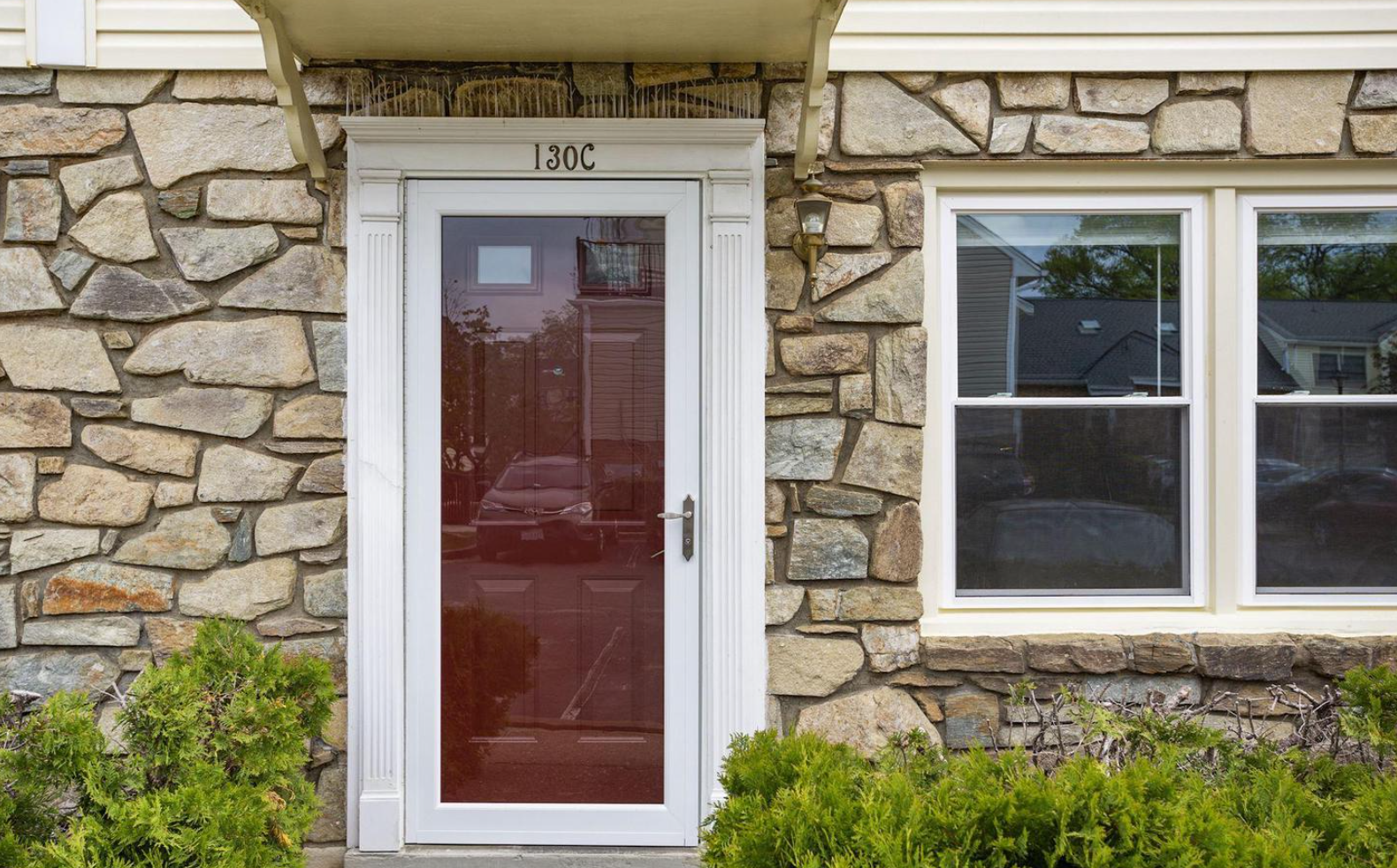Washington, D.C. is facing an unprecedented budget crisis, as Congress considers slashing the city’s locally funded budget by over $1 billion mid-year. Local officials warn that this federal proposal – inserted into a spending bill to avert a government shutdown – could force dramatic cuts to public services and jolt the region’s economy (DC prepares for $1 billion budget cut after House passes bill – NBC4 Washington) Beyond the headlines, homeowners are asking: What does this mean for the real estate market in D.C. and its Virginia suburbs? In this post, we’ll break down the situation in clear terms, explore potential impacts on housing and commercial property, and offer insight on navigating the uncertainty.
Overview: Congress Weighs a $1 Billion Cut to D.C.’s Budget
In a highly unusual move, the U.S. House of Representatives passed a stopgap funding bill that treats D.C. like a federal agency, overriding the city’s approved 2025 budget and reverting it to 2024 levels. This would chop approximately $1.1 billion from D.C.’s spending authority with only six months left in the fiscal year. Mayor Muriel Bowser has called the cut “senseless” and “reckless,” noting that D.C.’s budget was already balanced and approved before Congress intervened. Unlike federal departments, the District raises and spends its own revenue (taxes, fees, etc.), so Congress’s decision wouldn’t even reduce federal spending – it simply constrains what D.C. can do with local funds. Washington, D.C. isn’t just another federal program – it’s a city of 700,000+ residents with its own schools, police, and services. If enacted, D.C. would have to implement cuts almost immediately, starting with a hiring freeze and elimination of unfilled jobs, to comply with the lower spending cap
Reduced Services, Job Losses, and Economic Uncertainty in D.C.
City officials warn that such a steep, sudden budget cut would drastically reduce public services and trigger significant job losses in the District. Here’s what could happen if the cuts go through:
- Cuts to Essential Agencies: Ten key D.C. agencies that make up 70% of the local budget would face the deepest cuts (DC prepares for $1 billion budget cut after House passes bill – NBC4 Washington). In practical terms, police officers, firefighters, teachers, and transit workers are all on the budget chopping block. In fact, the proposal equates to roughly a 16% reduction in spending for the remainder of the year, which city officials say inevitably means layoffs or furloughs for front-line staff like first responders, teachers, and Metro employees.
- Immediate Service Impacts: With fewer personnel and resources, everyday services could deteriorate. Residents might experience longer 911 response times, fewer teachers and school programs, reduced public transportation service, and cutbacks in maintenance of parks or trash pickup.
- Economic Ripple and Uncertainty: Beyond service delivery, slashing $1+ billion in spending would inject major uncertainty into D.C.’s economy. Suddenly laying off potentially thousands of employees (or not filling jobs) means higher unemployment and less consumer spending locally. Contractors and businesses that depend on city projects could see contracts canceled.
- Credit Downgrade Risk: Perhaps most alarming for economists, D.C.’s financial stability could be shaken. The city currently enjoys a strong credit rating (Aaa), but analysts are watching how these budget battles unfold. Moody’s has signaled it is reviewing D.C.’s rating in light of the fiscal stress.
In short, the immediate outlook for D.C. services and jobs is grim if the cut is implemented. It’s a big if, as the bill still has to make its way through the Senate.
Impact on D.C. Real Estate: Home Values
What happens to D.C.’s real estate market when a city’s budget and workforce take a hit? History and early signals give us some clues. While we can’t predict exact numbers, experts anticipate pressure on both the housing market and the commercial property sector in the District.
- Housing Demand and Home Values: A large public-sector budget cut could cool the demand for homes in D.C. in the near term. Many city government employees (and contractors reliant on city projects) may put off buying homes – or even decide to relocate – if their jobs are at risk. Private-sector workers might also grow cautious, fearing that a weakened local economy will affect their industries. Fewer buyers in the market and rising uncertainty could translate into slower sales and softening prices, especially in neighborhoods heavily populated by government workers.
- Buyer Sentiment: Housing market sentiment in D.C. is likely to waver in the face of this budget fight. When people read headlines about city layoffs and service cuts, some prospective buyers may take a pause. Quality-of-life concerns could play a role too – for example, families might think twice about buying in D.C. if they worry about public school budget cuts or reduced public safety.
Ripple Effects in Northern Virginia: Perils and Opportunities
The Washington metro area is deeply interconnected. A fiscal crisis “inside the Beltway” doesn’t stop at the Potomac River. Northern Virginia (NoVA) could also feel the effects of D.C.’s budget crunch – in both good and bad ways.
Potential Benefits for NoVA:
- Flight to the Suburbs: If D.C.’s city services suffer (think: understaffed schools or rising crime due to fewer police), some families and workers may choose to relocate to the suburbs for a better quality of life. Northern Virginia’s communities could see an uptick in demand from residents seeking more stability. This dynamic isn’t new – the D.C. area has seen past waves of suburbanization when urban woes mounted. For NoVA’s housing market, new demand from relocating Washingtonians could put upward pressure on home prices and rents there. Areas with easy commutes (like Arlington or Alexandria) could especially benefit if people still work in D.C. but want to reside outside.
- Business and Investment Opportunities: Northern Virginia might also attract some businesses or investors who grow skittish about D.C. Virginia’s lower taxes and independent budget (not subject to congressional whims) were already a draw; the newfound uncertainty in D.C. could accelerate decisions to set up shop in NoVA instead of downtown Washington. We might see some companies choosing Arlington or Tysons for expansions over the District, figuring it’s a safer bet during turbulent times. More commercial activity in Virginia means more jobs locally, which is good news for the NoVA real estate market.
Potential Drawbacks for NoVA:
- Regional Economic Slowdown: The D.C. metro area functions as one economy in many respects. A serious downturn in the District – mass layoffs, contractors losing work, canceled events – can dampen economic activity across the region. Many Northern Virginia residents work in D.C. or depend on D.C. clients. Economic confidence is contagious (in both directions) – if consumers feel the whole region is hitting a rough patch, they might tighten spending or delay buying homes, even if they personally still have stable jobs.
- Northern Virginia prospers best when the whole region is thriving; a destabilized D.C. is not great news long-term, even if there are short-term wins in attracting people or businesses.
- Housing Market Tightness Shifts: Ironically, while D.C. might get a bit more inventory and slower price growth, Northern Virginia could experience the opposite problem: even more demand chasing the limited supply of homes. NoVA’s housing market has been very tight (low inventory) in recent years. An influx of new buyers from D.C. could worsen competition for homes, driving prices up further or at least keeping the market competitive. That’s a boon for current homeowners (rising equity) but a challenge for renters and first-time buyers in Virginia. In any case, real estate trends in NoVA will likely diverge somewhat from D.C.’s in the near term – with D.C. cooling and NoVA heating up – but both are intertwined and depend on how long this disruption lasts.
Short-Term Challenge or Long-Term Shift for the Housing Market?
Several factors suggest the impact could be temporary if the budget issue is resolved in the coming months. This D.C. local budget fight, while serious, might similarly be a short-term shock. It’s possible that Congress could reverse course in a subsequent budget or that D.C. finds workarounds to mitigate the damage. If so, much of the pent-up demand for housing could simply be delayed. Indeed, area realtors report that many buyers and sellers have been sitting on the sidelines due to political uncertainty – but once there’s clarity, they’ll re-enter the market (How Government Layoffs Could Affect NoVA's Housing Market). The region also still has a housing shortage, which will put a floor under how low prices can go even in a downturn and many affected employees “stay here and find other work” rather than leaving en masse, so the population and housing demand don’t crater.
My take: In the immediate term (next 6-12 months), expect a challenging but manageable period. The housing market may hit a speed bump – slower price growth, more listings, and cautious buyer behavior – mostly in D.C. proper. Northern Virginia might see the opposite: a brief surge in demand and firming of prices. But over the longer run, the D.C. metro housing market still has strong fundamentals like limited supply, high-income jobs, and desirability of the area. Unless the budget cuts become a perennial issue and government downsizing continues for years, this feels more like a temporary adjustment rather than a permanent decline.
Recommendations for Buyers & Sellers In Uncertain Times
Navigating the D.C.-area real estate market during this period of uncertainty can be daunting. Whether you’re looking to buy a home, sell one, or invest in property, here are some strategy tips to consider:
- For Homebuyers: If you’ve been trying to buy in D.C., keep an eye on new listings and price changes in the coming months. You may find that competition eases a bit and some sellers are more flexible on price – essentially, a window where the market tilts slightly in your favor. However, do your homework on neighborhood specifics. Areas less reliant on government jobs (or those with enduring amenities like universities or hospitals) may hold value better. If you’re considering shifting your search to Northern Virginia for more stability, be prepared for continued competition there despite the broader uncertainty – the best homes in NoVA can still attract multiple offers. Lock in a mortgage rate when you’re comfortable, and don’t try to time the bottom of the market perfectly; focus on finding a home that suits your needs for the next several years, since the region is likely to bounce back in time.
- For Home Sellers: If you’re a D.C. homeowner debating whether to sell, the calculus has changed. Pricing realistically is key in this environment. Gone are the days (for now) of aspirational overpricing; buyers have more reason to be picky. Work with a knowledgeable agent to understand recent comps and perhaps be willing to negotiate or offer incentives (like closing cost assistance) to attract a buyer. That said, if your neighborhood is still seeing decent demand (many parts of D.C. and close-in suburbs are), you don’t need to panic-sell – housing supply is still relatively low historically. Northern Virginia sellers might actually find this a fine time to list, as demand from D.C. movers could boost your pool of potential buyers. Just remember that uncertainty can swing both ways – stay informed on the news, because a big development (like Congress restoring D.C.’s funding authority) could quickly shift market sentiment again.
This is a fast-moving story, and the landscape could shift week to week. Whether this is a temporary setback or the start of a longer realignment depends on how policymakers respond and how buyers, sellers, and investors adapt. Stay informed, stay flexible, and be ready to act.
Sources:
- Mark Segraves, NBC4 Washington – “DC braces for $1 billion budget cut after House ignores spending bill plea” (Mar 12, 2025) (DC prepares for $1 billion budget cut after House passes bill – NBC4 Washington) (DC prepares for $1 billion budget cut after House passes bill – NBC4 Washington).
- DC Council Memorandum – Impacts of Proposed FY25 Budget Cut (Feb 2025) (dc-budget-memo-congress-shutdown-2025.pdf) (dc-budget-memo-congress-shutdown-2025.pdf).
- Fox 5 DC Digital Team – “House spending bill could cut $1 billion in DC funds, impacting schools, public safety” (Mar 10, 2025) (House spending bill could cut $1 billion in DC funds; impacting schools, public safety | FOX 5 DC) (House spending bill could cut $1 billion in DC funds; impacting schools, public safety | FOX 5 DC).
- Jeff Clabaugh, WTOP News – “DC-area housing market flashing yellow but not red yet...” (Mar 3, 2025) (DC-area housing market flashing yellow but not red yet over DOGE cuts, return-to-office mandate - WTOP News) (DC-area housing market flashing yellow but not red yet over DOGE cuts, return-to-office mandate - WTOP News).
Northern Virginia Association of Realtors/GMU CRA – Regional Housing Forecast (2025) (How Government Layoffs Could Affect NoVA's Housing Market) (How Government Layoffs Could Affect NoVA's Housing Market).

Khalil El-Ghoul
Khalil El-Ghoul is a seasoned real estate broker actively helping sellers and buyers throughout Northern Virginia, DC, and Maryland. Known for his no-nonsense approach, Khalil combines expert market insight with honest, objective advice to help buyers and sellers navigate every type of market—from calm to chaotic. If you’re looking for clarity, strategy, and a trusted partner in real estate, he’s the one to call. 571-235-4821, khalil@glasshousere.com






